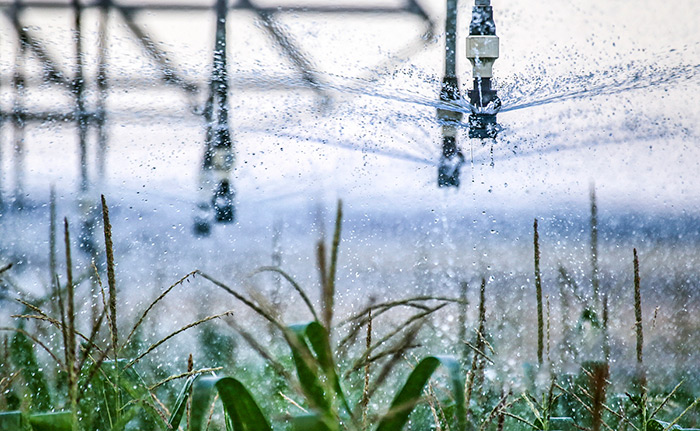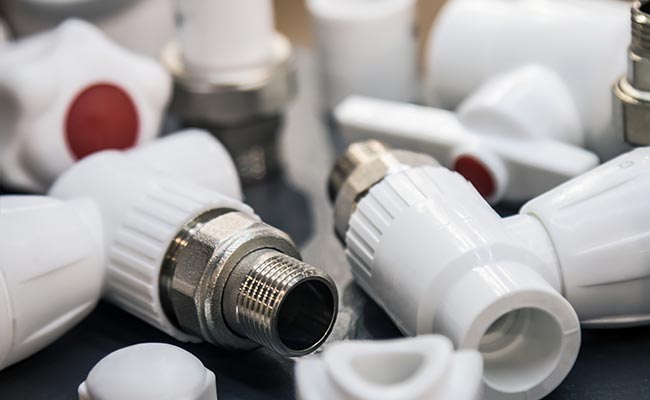
EPDM-flanĝa pakado elstaras pro sia kapablo trakti malfacilajn mediojn. Ĝi rezistas severajn kemiaĵojn, ekstremajn temperaturojn kaj fortan sunlumon. Studoj montras, ke EPDM-pakadojsigelu juntojn firme, eĉ kiam akvopremo altiĝas aŭ betono eluziĝas.
- Fidinda sigelado tenas akvosistemojn sekuraj
- Longdaŭra efikeco reduktas riparbezonojn
- Konstanta kvalito plenumas modernajn sekurecajn normojn
Ŝlosilaj Konkludoj
- EPDM-flanĝaj kusenetoj ofertas bonegan reziston al kemiaĵoj, vetero kaj ekstremaj temperaturoj, igante ilin fidindaj por malfacilaj medioj.
- Ili provizas longdaŭrajn sigelojn, kiuj reduktas prizorgadajn bezonojn kaj malaltigas kostojn, subtenante sekurecon en akvo, HVAC kaj industriaj sistemoj.
- Atestitaj laŭ sekurecaj kaj mediaj normoj, EPDM-kusenetoj certigas sekuran uzon en trinkakvaj kaj manĝaĵaj aplikoj, samtempe protektante la medion.
Ĉefaj Avantaĝoj de EPDM-Flanĝa Garnituro

Kemia Rezisto kaj Vetera Daŭripovo
EPDM-flanĝa pakadoofertas elstaran protekton kontraŭ severaj kemiaĵoj kaj malfacila vetero. Ĉi tiu materialo rezistas polusajn fluidojn kiel glikolon kaj fosforacidajn esterojn, igante ĝin ĉefa elekto por hidraŭlikaj kaj pneŭmatikaj sistemoj. EPDM ankaŭ rezistas varman akvon kaj vaporon, do ĝi bone funkcias en kaj industriaj instalaĵoj kaj hejmaj aparatoj. Ĝia kemia stabileco signifas, ke ĝi povas pritrakti diluitajn acidojn, alkalaĵojn kaj polusajn solvilojn kiel ketonojn kaj alkoholojn.
Kiam eksponita al sunlumo, ozono aŭ fortaj ventoj, EPDM-flanĝa kuseneto konservas sian forton. Ĝia nepolusa naturo kaj specialaj aldonaĵoj helpas ĝin rezisti UV-radiojn kaj oksidiĝon. Multaj industrioj, inkluzive de akvopurigado kaj nutraĵprilaborado, fidas EPDM-on pro ĝia sekureco kaj daŭreco. La suba tabelo montras kiel EPDM komparas kun aliaj komunaj sigelaj materialoj:
| Trajto | EPDM-kaŭĉuko | PVC-membrano | TPO-membrano | Bitum-bazita membrano |
|---|---|---|---|---|
| Veterrezisto | Alta | Modera | Alta | Modera |
| Kemia Rezisto | Alta | Modera | Modera | Malalta |
| Vivdaŭro | 50+ jaroj | 20-30 jaroj | 30+ jaroj | 20-25 jaroj |
| Fleksebleco | Bonega | Modera | Alta | Malalta |
EPDM-flanĝa kuseneto elstaras pro sia longa vivdaŭro kaj bonega rezisto al kaj kemiaĵoj kaj vetero, igante ĝin fidinda elekto por postulemaj medioj.
Temperatura Fleksebleco kaj Mekanika Forto
EPDM-flanĝa pakado funkcias bone en vasta gamo de temperaturoj. Ĝi restas fleksebla kaj forta de -30°F ĝis 300°F, kaj iuj tipoj eĉ povas pritrakti mallongajn eksplodojn ĝis 347°F. Ĉi tio igas ĝin perfekta por kaj malvarmaj kaj varmaj klimatoj. Eĉ post 1000 horoj da eksponiĝo al UV kaj ozono, EPDM-pakadoj konservas ĉirkaŭ 75% de sia originala forto.
- EPDM-kusenetoj rezistas varmon, ozonon kaj vaporon.
- Ili funkcias en temperaturoj de -45 °C ĝis 150 °C.
- Kelkaj povas elteni mallongdaŭran eksponiĝon ĝis 175 °C.
- Ĉi tiuj kusenetoj konservas sian formon kaj forton eĉ post jaroj da uzado.
Multaj industrioj uzas EPDM-flanĝajn garniturojn en bremslikvaĵo-sigeloj, radiatoraj garnituroj kaj klimatizaj sistemoj. Ĝia kapablo pritrakti kaj mekanikan streĉon kaj temperaturŝanĝiĝojn signifas malpli da paneoj kaj pli fidindan funkciadon.
Longa Servdaŭro kaj Malalta Bontenado
EPDM-flanĝa pakado liveras longan servodaŭron kun minimuma bontenado. Studoj montras, ke speciale mulditaj EPDM-pakadoj konservas sian sigelan potencon dum pli ol 10 jaroj, eĉ en severaj kondiĉoj. Ili rezistas eluziĝon, vibradon kaj ripetan kunpremon, kio signifas, ke ili bezonas malpli oftan anstataŭigon.
- EPDM-pakadoj plilongigas la vivdaŭron de ekipaĵo je 5 ĝis 10 jaroj.
- Ili malaltigas bontenadkostojn reduktante la bezonon de riparoj.
- Preciza inĝenierado kaj altnivela fandado helpas ĉi tiujn pakadojn daŭri pli longe.
- En 12-monata salspraĵa testo, EPDM-pakadoj montris nul likojn, eĉ en medioj kun alta salo kaj altaj vibradoj.
Elekto de EPDM-flanĝa kuseneto signifas malpli da interrompoj, pli malaltajn kostojn kaj trankvilon por iu ajn akvoprovizado aŭ industria sistemo.
Taŭgeco kaj Sekureco de Apliko de EPDM-Flanĝa Garnituro

Idealaj Uzoj kaj Industriaj Aplikoj
EPDM-flanĝa pakadotaŭgas por vasta gamo da industrioj. Multaj kompanioj elektas ĉi tiun pakon pro ĝia forta efikeco en akvoprovizado, hejtado, klimatizigo kaj klimatizigo, kemia prilaborado kaj fajroprotektaj sistemoj. Ĝi bone funkcias kaj endome kaj ekstere. La pako konservas sian flekseblecon kaj sigelan potencon eĉ post jaroj da uzo en severa vetero aŭ subteraj instalaĵoj.
- HVAC-sistemoj dependas de EPDM por senlikaj juntoj.
- Kemiaj fabrikoj uzas ĝin ĉar ĝi rezistas acidojn kaj alkalojn.
- Akvopurigaj instalaĵoj fidas ĝian sekurecon por trinkakvo.
- La nafto- kaj gasindustrioj taksas ĝian forton sub alta premo.
La suba tabelo elstarigas ĉefajn trajtojn kaj iliajn avantaĝojn:
| Trajto-Kategorio | EPDM-Pakado-Karakterizaĵoj | Industria Aplika Avantaĝo |
|---|---|---|
| Akvo- kaj Vaporrezisto | Bonega rezisto al akvo, vaporo kaj multaj akvopurigaj kemiaĵoj | Taŭga por municipa akvoprovizado, HVAC, fajroprotektaj sistemoj |
| Temperaturintervalo | Funkcias de -40°C ĝis +120°C (mallongtempe ĝis 150°C) | Fidinda en varmaj kaj malvarmaj akvomedioj |
| Maljuniĝo kaj Veterrezisto | UV, ozono kaj veterorezista, konservas flekseblecon laŭlonge de la tempo | Ideala por subĉielaj kaj subteraj instalaĵoj |
| Atestoj | WRAS, NSF/ANSI 61, ACS, KTW, DVGW | Aprobita por trinkakvo kaj nutraĵ-rilataj aplikoj |
| Personigaj Ebloj | Havebla en diversaj grandecoj, dikecoj, profiloj, kaj plifortigita por premo | Ebligas tajloritajn solvojn por specifaj flanĝoj kaj premobezonoj |
| Kemia Kongrueco | Rezistema al kloro kaj komunaj desinfektaĵoj | Daŭrema en aplikoj de traktita akvo kaj vaporo |
Konformeco al Sekurecaj kaj Atestadaj Normoj
Fabrikistoj desegnas EPDM-flanĝajn pakaĵetojn por plenumi striktajn sekurecnormojn. La materialo plenumas la regularojn de FDA pri ripeta manĝaĵkontakto, igante ĝin sekura por uzo en manĝaĵoj kaj trinkaĵoj. Ĝi ankaŭ plenumas internaciajn normojn pri trinkakvo kiel WRAS, NSF61 kaj KTW. Ĉi tiuj atestadoj pruvas, ke la pakaĵeto estas sekura por trinkakvo kaj aliaj sentemaj aplikoj.
- EPDM-kaŭĉuko plenumas la normojn ASTM D1418 por kaŭĉukaj materialoj.
- Tutmondaj atestadoj kiel API kaj ISO subtenas ĝian uzon en la nafto-, gaso- kaj kemiaj industrioj.
- Mediaj kaj sekurecaj atestadoj, inkluzive de ISO 14001, RoHS kaj REACH, montras engaĝiĝon al daŭripovo kaj sekureco.
Elektado de atestitaj EPDM-pakaĵoj helpas kompaniojn plenumi reguligajn postulojn kaj certigas sekuran funkciadon en kritikaj sistemoj.
Mediaj kaj Sanaj Konsideroj
EPDM-flanĝa kuseneto subtenas kaj median sekurecon kaj homan sanon. La materialo ne ellasas damaĝajn substancojn en akvon, igante ĝin taŭga por trinkakvaj sistemoj. Ĝia longa servodaŭro reduktas malŝparon kaj la bezonon de oftaj anstataŭigoj. Firmaoj profitas de pli malaltaj bontenadkostoj kaj pli malgranda media spuro.
- EPDM-kusenetoj helpas redukti energiperdon per provizado de hermetikaj sigeloj.
- La materialo estas libera de danĝeraj substancoj, subtenante sekuran akvoliveradon.
- Plenumo de mediaj normoj certigas respondecan uzon en moderna infrastrukturo.
EPDM-flanĝa pakado estas inteligenta elekto por industrioj, kiuj taksas sekurecon, fidindecon kaj median respondecon.
EPDM-Flanĝa Pakado kontraŭ Alternativaj Materialoj
Komparo kun Nitrilo, Neopreno, kaj Aliaj Kaŭĉukoj
Elekti la ĝustan materialon por la pakaĵo povas fari grandan diferencon en la rendimento de la sistemo. La suba tabelo montras kiel EPDM, nitrilo kaj neopreno kompariĝas en ŝlosilaj areoj:
| Materialo | Kemia Rezisto | Temperaturintervalo | Ŝlosilaj Fortoj | Tipaj Aplikoj |
|---|---|---|---|---|
| EPDM | Bonega rezisto al veteraĝado, ozono, UV-radioj, acidoj, alkaloj, akvo, vaporo | -70°F ĝis 300°F | Supera rezisto al veteraĝado kaj ozono; larĝa kemia rezisto; fleksebla je malaltaj temperaturoj | Akvosistemoj, vapormanipulado, subĉiela, HVAC, nutraĵprilaborado |
| Nitrilo (Buna-N) | Bonega rezisto al oleoj, fueloj, hidraŭlikaj fluidoj | -40°F ĝis 275°F | Alta tirstreĉo-rezisto kaj abrazio-rezisto; oleo- kaj fuel-rezisto | Aŭtomobilaj benzinsistemoj, naftomanipulado, hidraŭlikaj fokoj |
| Neopreno | Bona rezisto al vetero kaj oleo | Modera | Ĝeneraluzebla kun bona veterrezisto kaj oleorezisto | Eksterdomaj kaj aŭtomobilaj aplikoj |
EPDM elstaras pro sia vetero- kaj kemirezisto. Nitrilo plej bone funkcias kun oleoj kaj fueloj. Neopreno ofertas ekvilibran funkciadon por ĝenerala uzo.
Kiam EPDM-flanĝa pakado estas la preferata elekto
Multaj industrioj fidas EPDM-flanĝan kuseneton pro ĝia daŭreco kaj versatileco. Ĝi bone funkcias en akvosistemoj, hejtado, klimatizilo kaj aerkondiĉoj, kaj eksteraj tubaroj. EPDM rezistas ozonon, sunlumon, akvon kaj vaporon. Ĝi ankaŭ pritraktas larĝan temperaturintervalon. Ĉi tiuj trajtoj igas ĝin ideala por:
- Subĉielaj kaj subteraj akvoduktoj
- HVAC kaj vaporsistemoj
- Manĝaĵoj kaj trinkaĵoj prilaborado
- Medioj kun severa vetero aŭ kemiaĵoj
Studoj montras, ke EPDM-kusenoj daŭras pli ol 50 jarojn kaj konservas sian flekseblecon en malvarmaj aŭ varmaj kondiĉoj. Ili ankaŭ sorbas vibradon, kio helpas redukti likojn kaj bruon en mekanikaj sistemoj.
Por projektoj kiuj postulas longdaŭrajn sigelojn kaj protekton kontraŭ vetero, EPDM-flanĝa kuseneto liveras fidindajn rezultojn.
Limigoj kaj Kiam Konsideri Alternativojn
EPDM ne bone funkcias en medioj kun naftoleoj aŭ solviloj. En tiaj kazoj, nitrilo aŭ neopreno povas esti pli bonaj elektoj. Neopreno bone funkcias en maraj kaj oleoriĉaj medioj. Silikono taŭgas por alttemperaturaj aŭ manĝtaŭgaj bezonoj. Natura kaŭĉuko ofertas malaltkostan opcion por bazaj aplikoj.
- Uzu nitrilon por eksponiĝo al oleo kaj fuelo.
- Elektu neoprenon por maraj aŭ fajrorezistaj bezonoj.
- Elektu silikonon por ekstrema varmo aŭ medicinaj uzoj.
Elekti la ĝustan materialon por pakaĵo certigas sekurecon, efikecon kaj longdaŭran valoron por iu ajn projekto.
Firmaoj elektas EPDM-flanĝan pakadon en 2025 pro ĝia pruvita fortikeco kaj versatileco. Ĉi tiu pakado plenumas striktajn normojn kaj subtenas multajn industriojn. Decidantoj devus revizii siajn bezonojn kaj elekti la plej bonan materialon por ĉiu projekto. Fidinda sigelado komenciĝas per la ĝusta elekto.
Oftaj Demandoj
Kio faras EPDM-flanĝajn kusenetojn sekura elekto por trinkakvaj sistemoj?
EPDM-kusenoj plenumas striktajn sekurecnormojn. Ili ne ellasas damaĝajn substancojn. Multaj akvoprovizaj fakuloj fidas ilin por aplikoj de trinkakvo.
Kiom longe kutime daŭras EPDM-flanĝa pakado en akvoproviza sistemo?
Plej multaj EPDM-flanĝaj kusenetoj daŭras pli ol 10 jarojn. Kelkaj daŭras eĉ pli longe. Ilia daŭreco reduktas anstataŭigajn bezonojn kaj ŝparas monon.
Ĉu la PN16 UPVC-fiksaĵoj EPDM-flanĝa garnituro de PNTEK povas pritrakti altan premon?
- Jes, la pakado de PNTEK eltenas premojn ĝis 1.6MPa.
- Ĝi tenas hermetikan sigelon en postulemaj akvoprovizaj kaj irigaciaj sistemoj.
- Profesiuloj elektas ĝin pro fidinda funkciado.
Afiŝtempo: 07-Jul-2025





